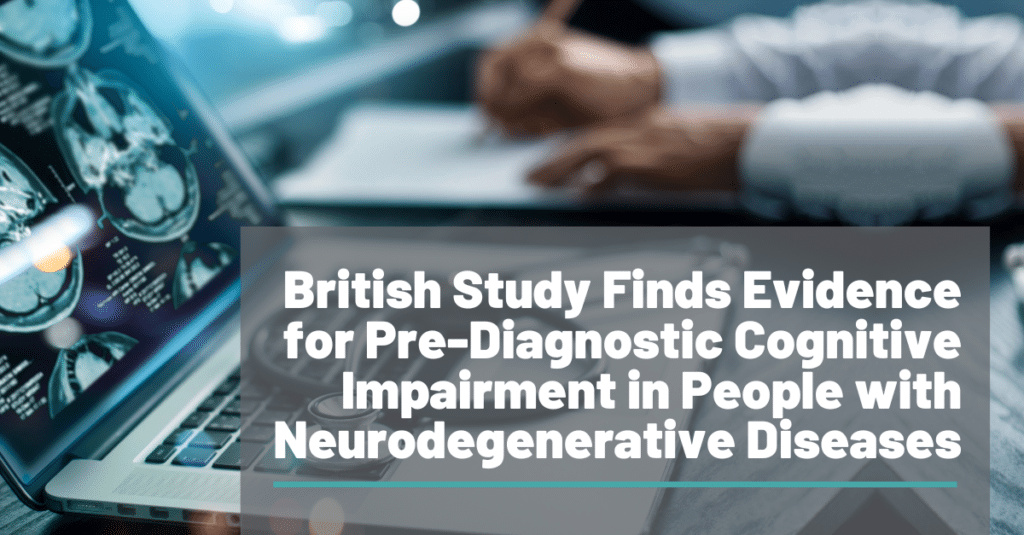British Study Finds Evidence for Pre-Diagnostic Cognitive Impairment in People with Neurodegenerative Diseases

A study published in the Alzheimer’s & Dementia medical journal found evidence of cognitive impairment in people diagnosed with a neurodegenerative disease like FTD years before an official diagnosis is made.
Researchers are starting to discover that features of FTD disorders are detectable at earlier stages in disease progression, as in a recent study which discovered that changes in motor functions associated with progressive supranuclear palsy (PSP) are detectable years earlier when using wearable sensors. However, many of these studies have revolved around genetic cases of FTD, with much less research conducted on sporadic cases that develop without a familial link.
To address the lack of studies, researchers hoped to examine if sporadic cases of FTD, Alzheimer’s disease (AD), and other disorders were also detectable pre-diagnosis.
The study collected data from the UK Biobank, which stores medical data taken from members of the general population. Among the many volunteers who took part in the Biobank program are people who would go on to develop sporadic FTD or another neurodegenerative disease. While the FTD refers to several disorders, the team narrowed their focus to frontotemporal dementia and progressive supranuclear palsy (PSP).
The team used regression modeling to analyze and compare the data pulled from the UK Biobank, and used a method known as “multiple imputation” to help fill in gaps where Biobank data was missing.
According to the team’s analysis, features of FTD and other neurodegenerative disorders are detectable between 4.7 to 8.3 years before diagnosis. The team also found that:
- There was strong evidence to indicate decreased fluid intelligence (the abilities necessary for abstract reasoning and problem solving) in people who developed sporadic frontotemporal dementia and PSP.
- There was also strong evidence of slowed reaction times in people with frontotemporal dementia, with moderate evidence for people with PSP.
- There was evidence of worse overall health in people with frontotemporal dementia and PSP.
- An increased number of falls were observed in people with PSP, though not so much in people with frontotemporal dementia.
Researchers noted that the study was limited by several factors. As frontotemporal dementia and PSP are both rare diseases, the sample sizes of people used in the study were smaller than other groups, like those with AD. The UK Biobank is also notably skewed towards those with a lower risk of disease in general, and wasn’t entirely representative of the demographic makeup of the UK, limiting the applicability of the study’s results.
Early diagnosis is crucial for the treatment of FTD; an early diagnosis allows individuals to receive treatment for certain symptoms at earlier stages, when intervention can be more effective. If you need help finding a specialist to aid in diagnosing FTD, contact the AFTD HelpLine at 1-866-507-7222 or info@theaftd.org.
You may also find resources such as care facilities sorted by state on AFTD’s website.
By Category
Our Newsletters
Stay Informed
Sign up now and stay on top of the latest with our newsletter, event alerts, and more…
